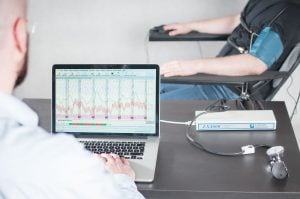Merseyside polygraph used in child abuse case
A Merseyside polygraph test could have aided police in child abuse cases.
The inquiry
A national inquiry into child sexual abuse reveals concerns about the handling of several cases in St Helens.
Police missed opportunities to investigate the possible sexual exploitation of a despite frequent reports.
The Independent Inquiry into Child Sexual Abuse is releasing a 193-page report on their most recent finds.
The report
Created to look at the role institutions in England and Wales had played in protecting children, it focused on six areas – one of which was St Helens.
The inquiry highlighted a number of concerns, including that Merseyside Police officers were not questioning children enough on “where they had been and with whom” when found after going missing.
One case study focused on the experiences of a girl who was deemed at “very high risk” of sexual exploitation and kept being found with older men in suspicious circumstances.
The report said: “There were numerous failures to investigate sexual exploitation St Helens. This includes a girl aged 11 who was drunk in a park with older males. When an older male took her to a holiday park for several nights the police discovered her. She was in bed with an older male and another male hiding under the bed.
Merseyside Police
The report shows Merseyside Police “acknowledge that the police response didn’t protect the boy enough. More interrogation needed to be done on the males who were with the boy”.
Other issues raised through the inquiry included concerns about the language used by officials in relation to victims, and questions about the resources available to identify children vulnerable to crime gangs not already known to Merseyside Police.
More case studies
A boy with learning difficulties who was placed in St Helens by another council was raped and sexually exploited after being targeted through a dating app.
In relation to his case, the report said: “A risk assessment by placement staff noted that he had ‘openly stated meeting unknown males for sex’ and that he ‘has no concept about the danger he is placing himself in when meeting unknown males for sex’.
Police comments
Commenting on the inquiry, Deputy Chief Constable Ian Critchley says “significant progress” is happening within the force”.
He said: “Every child matters. They should be safe and cared for. Childrenshould be able to thrive in our communities”.
“As police we are doing all we can. We aim to pursue and prosecute criminals who abuse young people. However the inquiry has found more must be done to stop this abuse from happening in the first place.
St Helen’s response
Jim Leivers is director of children’s services at St Helens Borough Council. Leiver’s says organisation is “working hard to protect and support young people. However, as the inquiry finds out, more actions need to be in place to stop this abuse”.
He says steps are in place. “Over the last two years St Helens has developed its exploitation services. This includes working with Catch 22, a national charity. The chairty interview and help all children that go missing”.
Child abuse cases rise
It tells us children are sexual victims of predators and groups. The groups are in all parts of England and Wales. The abuse takes place in “most degrading and destructive ways”, with many victims raped or sexually assaulted repeatedly. The abuse takes place over a period of months or even years.
Chair to the inquiry, Professor Alexis Jay, says: “The sexual exploitation of children by networks is not a rare phenomenon”. “It is a crime which involves the sexual abuse of children in the most horrific ways”.
Moving forwards
The inquiry made six recommendations for the more effective targeting of exploitation gangs, including a requirement for police forces and councils to collect specific data on all cases of known or suspected child sexual exploitation, including by criminal gangs and organised networks.
Polygraph testing
In conclusion, Police forces want more money for polygraph testing. It comes after a successful nationwide scheme took place by police in sex and child abuse cases. Carrying out the lie detector tests at inquiry stages saw police arrest more suspects and confirm that they have reduced the risk of attacks and cases.
If you think a child you know could be a victim of abuse then book a lie detector test online today. You can also call our free helpline on 07572 748364 to book, or to discuss further.


